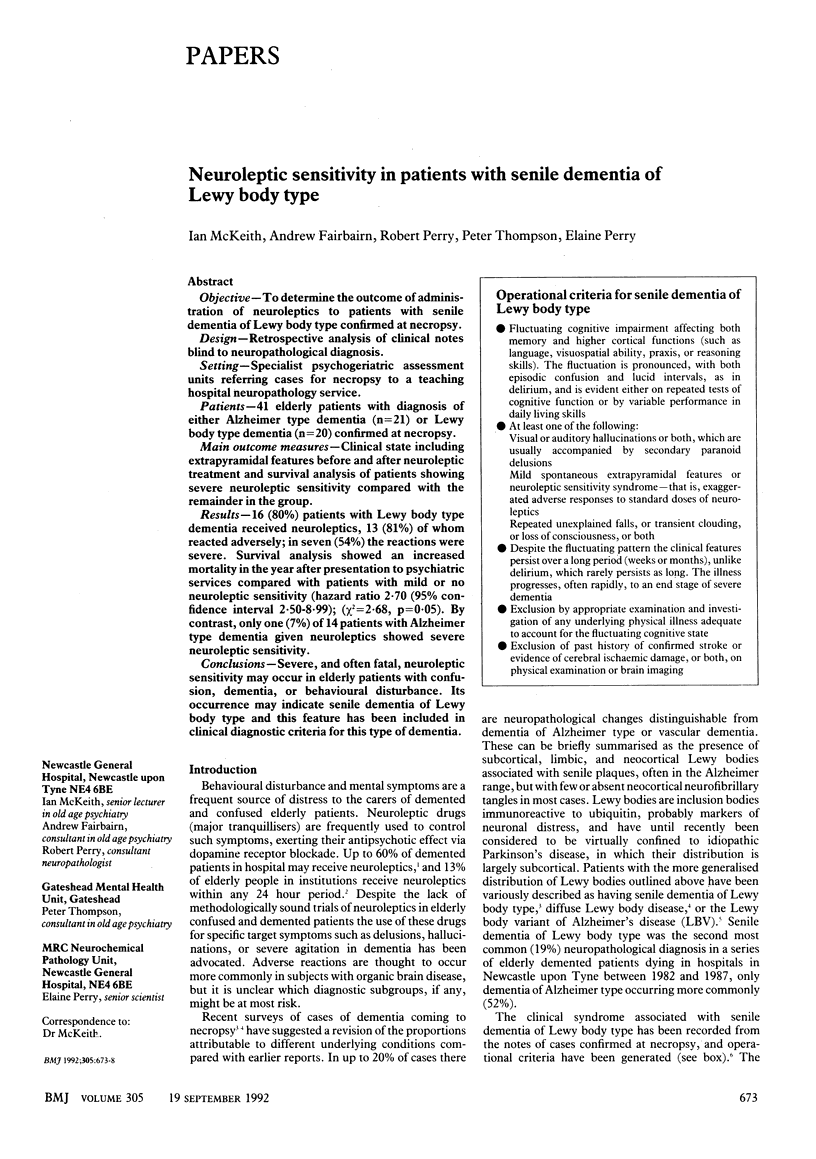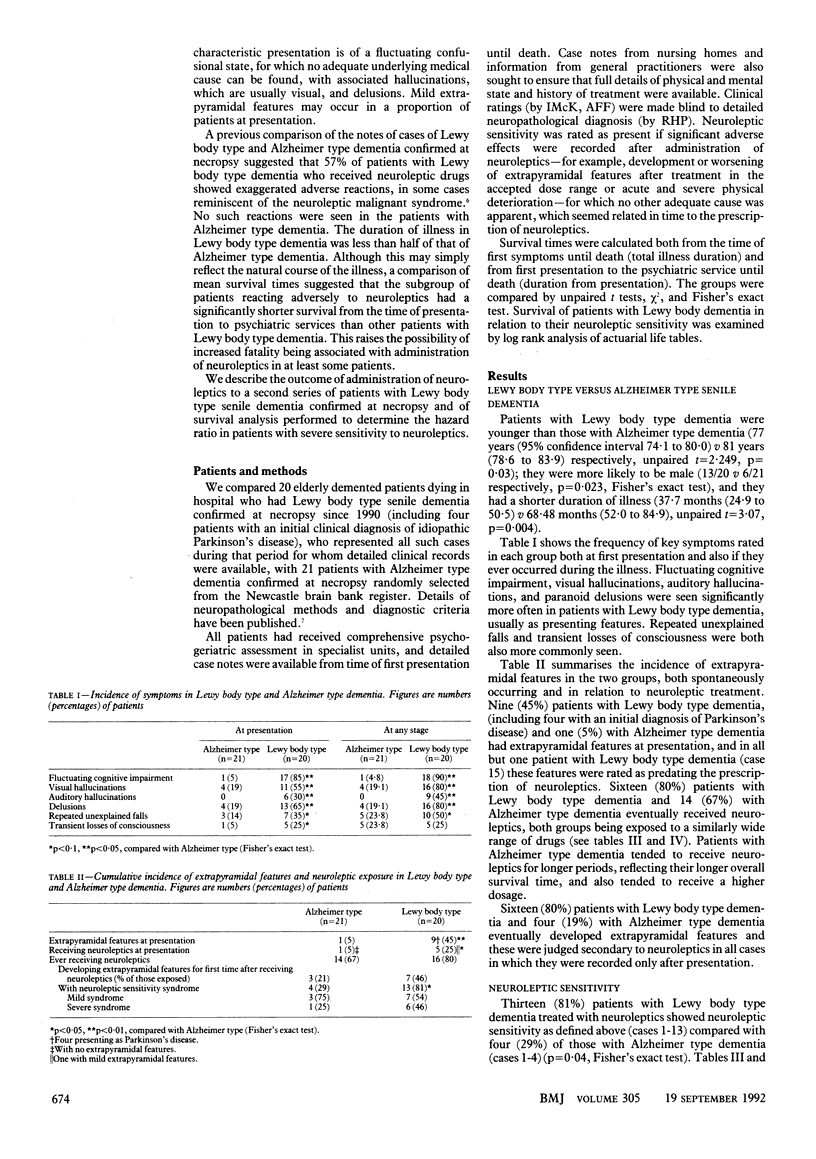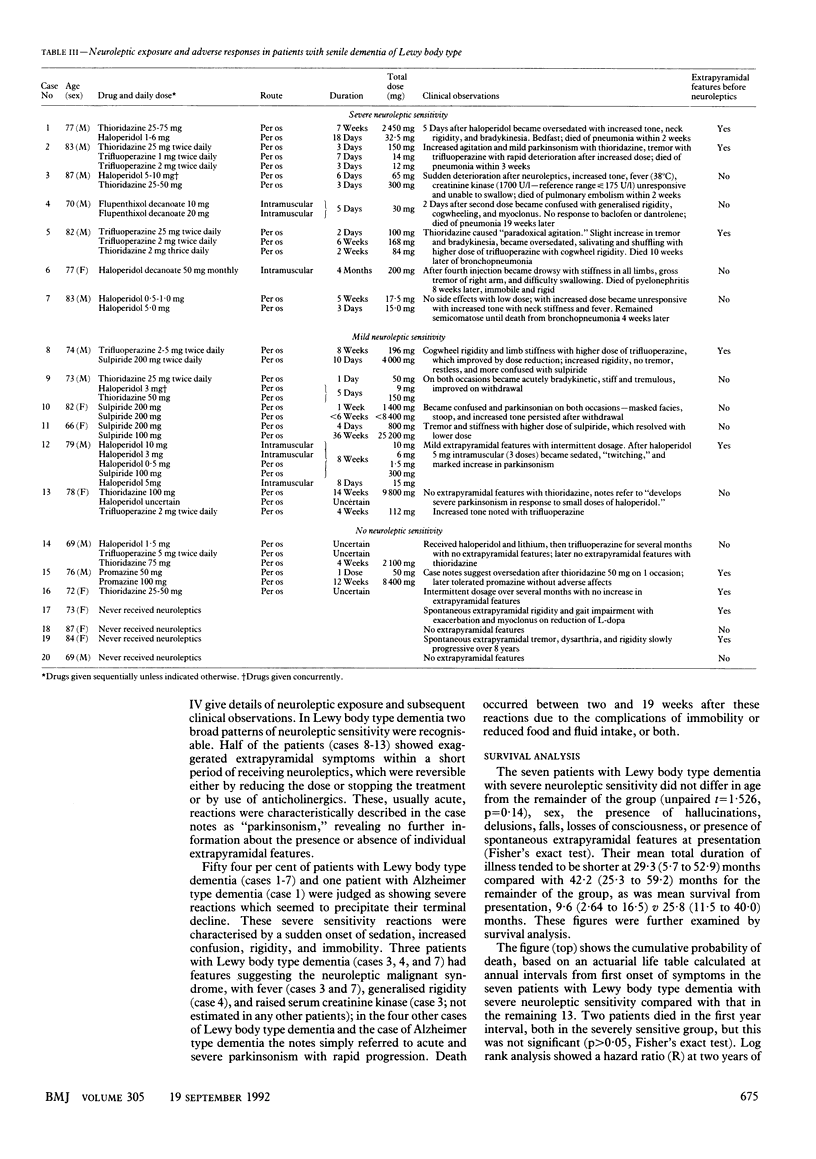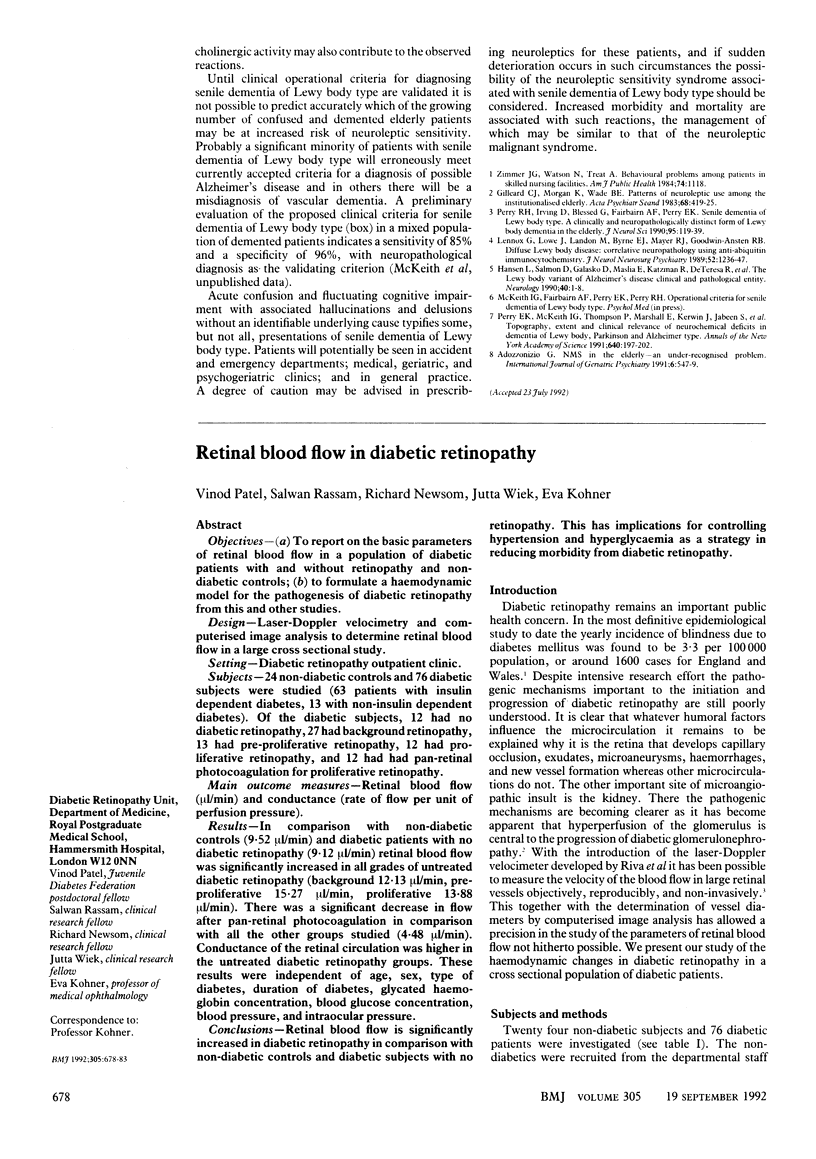Abstract
OBJECTIVE--To determine the outcome of administration of neuroleptics to patients with senile dementia of Lewy body type confirmed at necropsy. DESIGN--Retrospective analysis of clinical notes blind to neuropathological diagnosis. SETTING--Specialist psychogeriatric assessment units referring cases for necropsy to a teaching hospital neuropathology service. PATIENTS--41 elderly patients with diagnosis of either Alzheimer type dementia (n = 21) or Lewy body type dementia (n = 20) confirmed at necropsy. MAIN OUTCOME MEASURES--Clinical state including extrapyramidal features before and after neuroleptic treatment and survival analysis of patients showing severe neuroleptic sensitivity compared with the remainder in the group. RESULTS--16 (80%) patients with Lewy body type dementia received neuroleptics, 13 (81%) of whom reacted adversely; in seven (54%) the reactions were severe. Survival analysis showed an increased mortality in the year after presentation to psychiatric services compared with patients with mild or no neuroleptic sensitivity (hazard ratio 2.70 (95% confidence interval 2.50-8.99); (chi 2 = 2.68, p = 0.05). By contrast, only one (7%) of 14 patients with Alzheimer type dementia given neuroleptics showed severe neuroleptic sensitivity. CONCLUSIONS--Severe, and often fatal, neuroleptic sensitivity may occur in elderly patients with confusion, dementia, or behavioural disturbance. Its occurrence may indicate senile dementia of Lewy body type and this feature has been included in clinical diagnostic criteria for this type of dementia.
Full text
PDF





Selected References
These references are in PubMed. This may not be the complete list of references from this article.
- Gilleard C. J., Morgan K., Wade B. E. Patterns of neuroleptic use among the institutionalised elderly. Acta Psychiatr Scand. 1983 Dec;68(6):419–425. doi: 10.1111/j.1600-0447.1983.tb00950.x. [DOI] [PubMed] [Google Scholar]
- Hansen L., Salmon D., Galasko D., Masliah E., Katzman R., DeTeresa R., Thal L., Pay M. M., Hofstetter R., Klauber M. The Lewy body variant of Alzheimer's disease: a clinical and pathologic entity. Neurology. 1990 Jan;40(1):1–8. doi: 10.1212/wnl.40.1.1. [DOI] [PubMed] [Google Scholar]
- Lennox G., Lowe J., Landon M., Byrne E. J., Mayer R. J., Godwin-Austen R. B. Diffuse Lewy body disease: correlative neuropathology using anti-ubiquitin immunocytochemistry. J Neurol Neurosurg Psychiatry. 1989 Nov;52(11):1236–1247. doi: 10.1136/jnnp.52.11.1236. [DOI] [PMC free article] [PubMed] [Google Scholar]
- Perry E. K., McKeith I., Thompson P., Marshall E., Kerwin J., Jabeen S., Edwardson J. A., Ince P., Blessed G., Irving D. Topography, extent, and clinical relevance of neurochemical deficits in dementia of Lewy body type, Parkinson's disease, and Alzheimer's disease. Ann N Y Acad Sci. 1991;640:197–202. doi: 10.1111/j.1749-6632.1991.tb00217.x. [DOI] [PubMed] [Google Scholar]
- Perry R. H., Irving D., Blessed G., Fairbairn A., Perry E. K. Senile dementia of Lewy body type. A clinically and neuropathologically distinct form of Lewy body dementia in the elderly. J Neurol Sci. 1990 Feb;95(2):119–139. doi: 10.1016/0022-510x(90)90236-g. [DOI] [PubMed] [Google Scholar]
- Zimmer J. G., Watson N., Treat A. Behavioral problems among patients in skilled nursing facilities. Am J Public Health. 1984 Oct;74(10):1118–1121. doi: 10.2105/ajph.74.10.1118. [DOI] [PMC free article] [PubMed] [Google Scholar]



